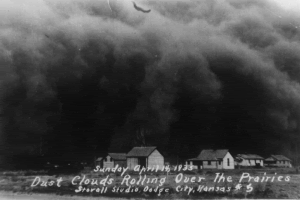Quantum Windbag
Gold Member
- May 9, 2010
- 58,308
- 5,099
- 245
Much has been said here about the cost of cutting emissions. What is the cost of failing to?
Yale Environment 360: Calculating the True Cost<br /> Of Global Climate Change
Calculating the True Cost
Of Global Climate Change
Researchers disagree about what the economic costs of climate change will be over the coming decades. But the answer to that question is fundamental in deciding how urgent it is to take action to reduce emissions.
by john carey
When climate legislation died last summer in Congress, one cause was the powerful drumbeat of claims that the bill would bring economic disaster. The legislation would amount to a massive tax hike, devastating an already crippled economy and throwing more people out of work, charged Senator James Inhofe (R-Ok) and Glenn Beck. It would be the final nail in the coffin of the American middle class, proclaimed an ad from the Conservative Society of America. Despite supporters protests that the price tag of greenhouse gas curbs would be modest, voters fear of hits to their pocketbooks forced even many Democrats to backpedal.
The heated argument about economic costs, however, barely touched one vitally important issue: the costs of NOT taking action on climate. What if last summers Russian heat wave and drought, which destroyed one third of the countrys wheat crop, or the catastrophic floods in Pakistan and China, or category 5 hurricanes like Katrina are just glimpses of future havoc from warming left unchecked? As Kevin Trenberth, head of the Climate Analysis Section at the National Center for Atmospheric Research, observes, Certain events would have been extremely unlikely to have occurred without global warming, and that includes the Russian heat wave and wild fires, and the Pakistan, Chinese, and Indian floods.
The economic costs of such disasters could make even inflated estimates of the legislations price tag look small, says University of California, Berkeley, economist Michael Hanemann. Yet Congress didnt seem to care. The question of damages from climate change never penetrated the debate in Theres a deeply rooted perception in the U.S. that the economy will suffer little damage from climate change.Washington, Hanemann says.
I have a wonderful idea. We should force everyone to go back to horses and buggies, and eliminate any form of communication that is faster than a running horse. This won't solve the problem of flooding, but we won't have to listen to Old Rocks act like it is our fault for not rejecting modern technology.



 ........but its not a breadbasket hit.
........but its not a breadbasket hit.
 Its called the far lefty inability to think on the margin and comprehend the necessary tradoffs of the middle class getting whacked upside of the head.
Its called the far lefty inability to think on the margin and comprehend the necessary tradoffs of the middle class getting whacked upside of the head.









